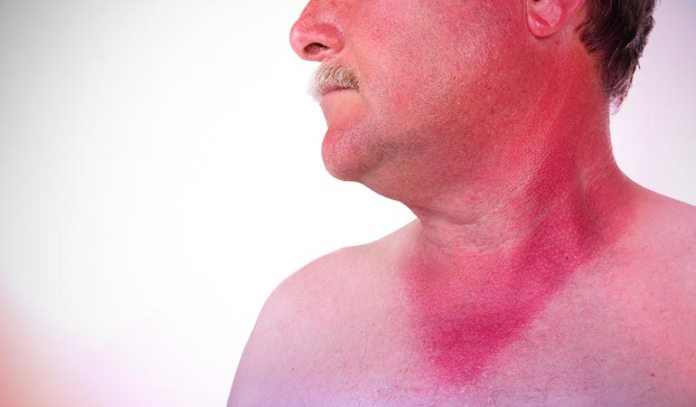Our skin is not always in its best condition and needs our attention from time to time. Although skin conditions such as acne and eczema are common, when they’re at their absolute worst, it isn’t a pretty sight. It has been noticed that the number of chronic inflammatory skin problems such as acne or eczema are on the rise and people dealing with certain conditions are even suffering from anxiety disorders and depression. These are skin conditions that affect one’s hormonal health, and due to their effect on hormones, one goes through emotional distress. In fact, these negative feelings do not serve any good and only make the skin problems worse. Read on to find out which skin conditions can lead to depression and how to deal with them and treat them permanently.
1. Acne

Acne starts with the change in hormone levels that begin in adulthood, leading to increase in oil production. However, it affects adults as well when there is cell turnover that comes with age and this cell turnover mixes with bacteria and leads to pimples.
How To Control The Effects Of Acne?
You can follow various home remedies to calm acne issues down. Rubbing with ice cubes, using apple cider vinegar, rubbing banana peel, etc. are easy ways to treat a person from acne problems. Certain medical treatments and therapies are also available to treat acne.
How To Treat Acne In The Long Term?
It has been found that blue LED light rays have the ability to kill the bacteria that causes acne. So, if you are prone to getting breakouts in the same spot regularly, you can use LED light treatment once a week for prevention. Before bedtime, make it a habit that you slather with a non-emollient retinoid formula so that it boosts cell turnover and prevents the pores from getting clogged.
2. Eczema

People suffering from eczema can feel their skin tip over at any moment and this can freak them out. You might often get a red, itchy, and dry rash particularly on the nose and the cheeks, either due to sweat or irritants in the air. If you are suffering from chronic eczema, it might be due to a missing protein called filaggrin that is present in the skin barrier. Absence of filaggrin drains moisture out and helps inflammatory factors to seep into the skin.
How To Reduce Eczema Effects?
To calm down eczema, it is recommended that you pat on a thin layer of a 1 percent hydrocortisone cream so that the redness is reduced. You can hold a lukewarm washcloth on top of it for about 10 minutes so that the cream penetrates more quickly. Wash it off with a mild cleanser and a basic moisturizer. This helps in sealing the moisture in and also, keeps irritants out. Make sure not to use hydrocortisone for more than a week as it is a steroid and can result in the thinning of skin. In case the flare-up doesn’t improve, consult a dermatologist.
How To Treat Eczema In The Long Term?
To treat yourself from eczema, use fragrance-free products and cleansers that are pH-neutral. Use moisturizers that contain ceramides as they help the skin to rebuild itself. The ceramides fill in the skin cracks and this provides relief from eczema.
3. Rosacea

A recurring bad sunburn could be a case of rosacea. Rosacea causes increase in blood flow to the skin’s surface and is accompanied by swelling, pustules, severe heat, and blood vessels that enlarge with time. Rosacea can spread across the cheeks or appear mildly at the corners of the nose. Women are more prone to develop rosacea due to fluctuations in hormone levels, and particularly after they hit 30 years of age.
How To Reduce Rosacea Effects?
To calm down rosacea you need to bring down the dilation of your blood vessels. To do that, just put something cold at the crook of your neck as the receptors for temperature regulation for your face are located there. You can also use an anti-inflammatory lotion or treat with a lotion that contains soothing colloidal oatmeal, aloe vera, and turmeric that has a green hue to help neutralize flushes.
How To Treat Rosacea In The Long Term?
To treat rosacea for a long period of time, you need to identify the specific factors that trigger the condition and stay away from them. For most people, it is because of the sun. Be vigilant of what sunscreen you use and choose to get yourself a ‘sunscreen infused with niacinamide’. You may also use anti-inflammatory creams that help in shrinking down blood vessels that induce redness in the skin.





